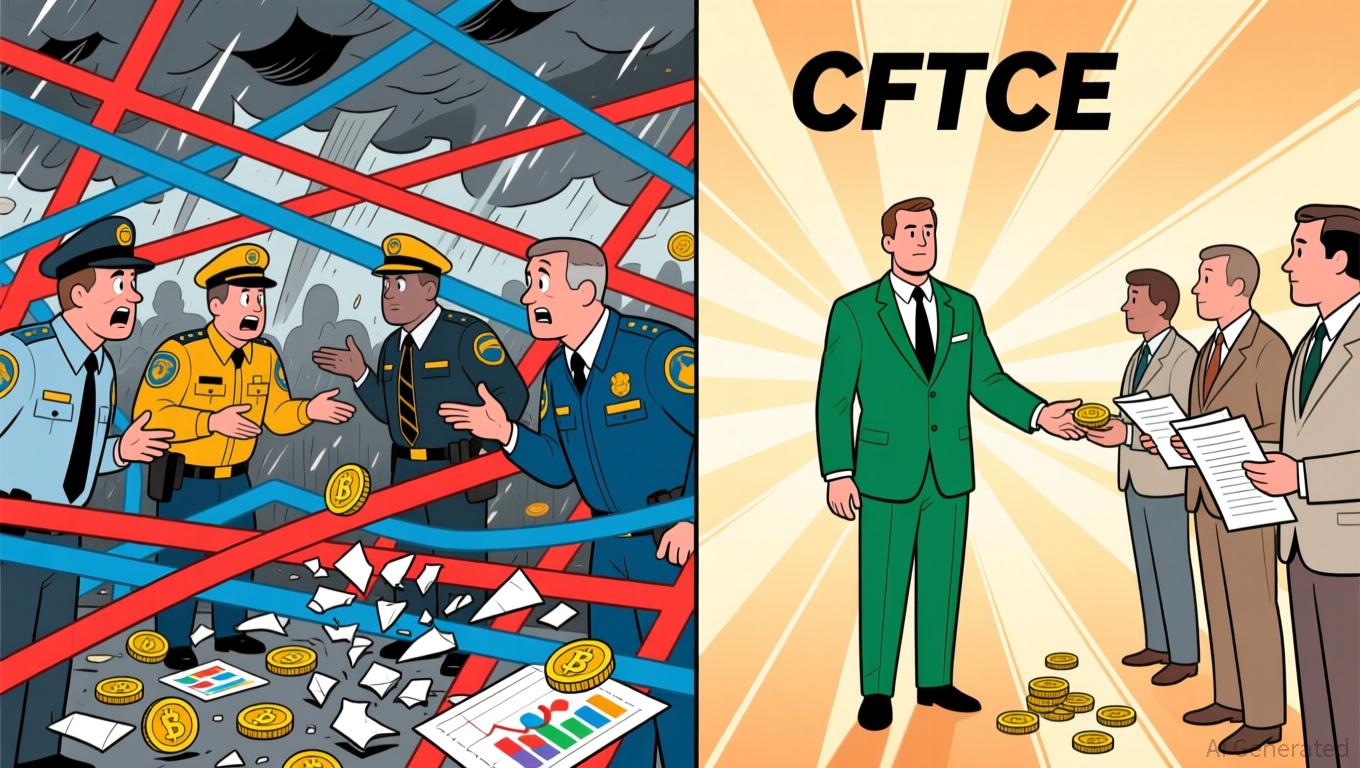UK Crypto Framework Ignites Discussion on Balancing Innovation and Regulation
- UK unveils cryptoasset regulatory framework to align digital markets with traditional finance standards and protect 12% of crypto-owning adults. - Crypto firms offering trading, custody, or stablecoins must obtain FCA authorization under same governance and resilience standards as banks. - Consumer Duty rules aim to prevent foreseeable harm, while stablecoin credit purchases face restrictions to avoid unsustainable debt risks. - UK-US collaboration on digital asset sandboxes and domestic cETN retail acce

The United Kingdom has introduced an extensive set of regulations for cryptoassets, representing a major move to bring digital asset markets in line with established financial sector norms and to emphasize consumer safety. The Financial Conduct Authority (FCA) and HM Treasury have released draft laws and consultation documents, such as the Financial Services and Markets Act 2000 (Regulated Activities and Miscellaneous Provisions) (Cryptoassets) Order 2025, which will subject crypto businesses to tighter regulatory scrutiny. These measures are designed to safeguard the roughly 12% of UK adults who currently hold or have previously held cryptoassets—a proportion that has more than doubled since 2021.
With the proposed framework, companies dealing in crypto services—including trading platforms, custody, staking, and stablecoin issuance—will need to secure FCA approval and adhere to the same governance, operational resilience, and conduct requirements as conventional financial firms. The FCA’s Handbook, including Principles for Business (PRIN) and Threshold Conditions (COND), will be enforced to ensure companies operate ethically, maintain sound financial practices, and effectively manage conflicts of interest. Furthermore, operational resilience standards will require firms to prepare for threats like cyberattacks and technical outages, with particular attention to protecting private keys and addressing challenges linked to decentralization.
Protecting consumers is a key focus of these changes. The FCA is seeking feedback on extending its Consumer Duty to crypto companies, obliging them to act honestly and prevent foreseeable harm. However, the decentralized structure of many cryptoassets presents unique challenges, leading the FCA to consider specific protections for retail customers, such as limits on crypto lending and credit-based purchases. For example, buying cryptoassets with credit may be restricted to avoid excessive debt, though certain stablecoins issued by FCA-approved entities might be excluded from these rules.
The new regulatory approach also highlights the importance of international cooperation. The UK and US are considering joint initiatives to encourage responsible digital asset development, including the possibility of cross-border sandboxes for digital securities. Within the UK, the FCA intends to remove the ban on retail access to exchange-traded notes (cETNs) for
Opinions among industry participants are mixed. The FCA maintains that applying the principle of “same risk, same regulatory outcome” will build confidence and support innovation, but some critics argue the new requirements may place undue pressure on smaller businesses and push innovation abroad. The consultation period, which runs until November 2025, gives companies the opportunity to comment on proposals such as the Senior Managers and Certification Regime (SM&CR) and capital requirements for stablecoin providers. The finalized regulations are expected in 2026, with transitional measures for firms already registered under anti-money laundering (AML) rules.
These reforms highlight the UK’s goal to become a leading center for digital assets. By applying tried-and-tested financial regulations to the crypto sector, the government seeks to encourage innovation while maintaining stability, tackling risks like fraud and market manipulation, and attracting institutional investors. Nevertheless, the effectiveness of the new framework will depend on its ability to keep pace with the fast-changing crypto landscape without hindering progress.
Disclaimer: The content of this article solely reflects the author's opinion and does not represent the platform in any capacity. This article is not intended to serve as a reference for making investment decisions.
You may also like
Bipartisan Legislation Assigns Crypto Regulation to CFTC to Clarify Oversight Uncertainty
- U.S. lawmakers propose shifting crypto regulation from SEC to CFTC via a bipartisan bill, reclassifying most digital assets as commodities. - The draft aims to resolve regulatory ambiguity stifling innovation, building on stalled House CLARITY Act efforts during the 38-day government shutdown. - Market optimism surged as shutdown relief pushed Bitcoin above $105k, with ETF outflows persisting amid anticipation of clearer CFTC-led oversight. - Critics warn of CFTC resource constraints, while proponents hi

Solana News Update: DevvStream Invests in SOL Despite $11.8M Deficit, Shows Strong Confidence in Sustainable Blockchain Prospects
- DevvStream Corp. (DEVS) disclosed holding 12,185 SOL and 22.229 BTC, staking SOL for 6.29% annualized yield amid a $11.8M fiscal 2025 loss. - The company launched a digital asset treasury via BitGo/FRNT Financial, securing $10M liquidity from a $300M convertible note facility. - Plans include a 2026 tokenization platform for carbon credits and Solana staking, aligning with its de-SPAC/Nasdaq listing strategy. - Despite crypto market outflows, DevvStream's staked SOL attracted inflows, contrasting broader
ALGO Falls by 2.28% Over 24 Hours as Short- and Long-Term Performance Shows Mixed Results
- ALGO dropped 2.28% in 24 hours to $0.1844, contrasting with 17.29% weekly and 4% monthly gains but a 44.84% annual decline. - Traders monitor ALGO's resilience amid macroeconomic shifts, though long-term bearish trends highlight structural challenges. - Key support at $0.18 could trigger bullish momentum if held, while breakdown risks further declines toward $0.15. - A backtest analyzing 15% single-day spikes aims to assess ALGO's potential for sustained gains or pullbacks post-rallies.
BCH Gains 1.24% Following Banco de Chile’s Announcement of Bylaw Changes
- Banco de Chile (BCH) announced bylaw amendments on Nov 10, 2025, to strengthen corporate governance and align with regulatory standards. - The announcement coincided with a 10.81% 7-day stock surge, contrasting with a 2.07% monthly decline but supporting a 20.6% annual gain. - Investors viewed governance reforms positively, as such changes often signal improved transparency and accountability in regulated markets.